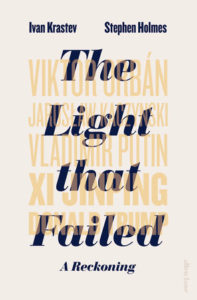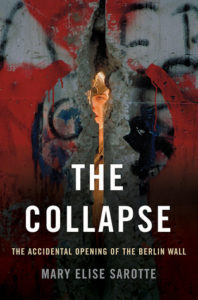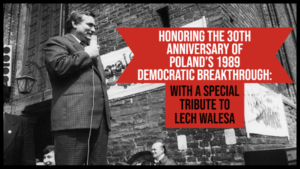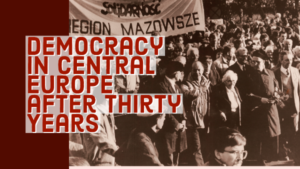 Thirty years after the Berlin Wall fell, ending the Cold War in Europe, new political divisions are rising between East and West. Despite the economic success of German reunification and the triumph of democracy across Eastern Europe, the two regions are drifting apart again in a clash of values, notes analyst Bojan Pancevski.
Thirty years after the Berlin Wall fell, ending the Cold War in Europe, new political divisions are rising between East and West. Despite the economic success of German reunification and the triumph of democracy across Eastern Europe, the two regions are drifting apart again in a clash of values, notes analyst Bojan Pancevski.
In most of the West, mainstream parties, while increasingly challenged by insurgent politicians, are largely sticking to a postwar consensus forged around liberal values, the rule of law, fundamental human rights and time-tested institutions. Much of the East is a mirror image, where nativist parties that favor more authoritarian rule and reject immigration, ethnic and religious diversity, gay rights and feminism as signs of weakness and moral decadence are either in power or on the ascent, he writes for the Wall Street Journal:
Some Eastern European countries that once fought against Soviet oppression, such as Poland, the Czech Republic and Hungary, are now ruled by governments that vehemently reject some liberal Western values….In his recent book, “The Light That Failed,” Ivan Krastev, a Vienna-based Bulgarian academic, explores how the two parts of Europe embraced each other, only to diverge again. …Mr. Krastev said Hungarian Prime Minister Viktor Orban. and other self-proclaimed illiberal leaders pander to voters who rebel against what the academic calls the “replacement of communist orthodoxy with a liberal orthodoxy.”
 The revolutions of 1989 were struggles of national emancipation more than a broad democratic uprising, said former World Bank economist Branko Milanovic from Serbia. Even as 1989 offered democracy followed by EU membership and rapid economic growth, Eastern nations never embraced ethnic diversity, he added.
The revolutions of 1989 were struggles of national emancipation more than a broad democratic uprising, said former World Bank economist Branko Milanovic from Serbia. Even as 1989 offered democracy followed by EU membership and rapid economic growth, Eastern nations never embraced ethnic diversity, he added.
My assumption in 1989 was that Soviet-syle totalitarianism was an alien implant that would vanish from countries closer to Berlin than Moscow. Yet some legacies of communist rule have proved enduring, perhaps because they are all too compatible with the resurgent illiberal movements, the Post’s Jackson Diehl adds:
- One is the use of state-run national television for political propaganda. After the establishment of democracy, Poland moved to make its government-owned network independent, similar to the BBC. That abruptly ended when the right-wing Law and Justice party came to power in 2015. Now state television glorifies the ruling party and slimes its opponents in a fashion eerily reminiscent of communist times. In Hungary, Orban has gone a step further, using state resources and friendly businessmen to all but eliminate independent media.
- A second legacy is pervasive official corruption. In the morally nihilistic world of Eastern Bloc communism, everyone from traffic cops to Communist Party secretaries felt free to exploit the system for private profit. To a disturbing extent, that has not changed. Only a few months ago was Liviu Dragnea, Romania’s most powerful politician through the 2010s, finally imprisoned for abuse of power. As the New York Times recently documented, European Union subsidies have enriched Orban’s relatives and old friends.
The fall of the Berlin Wall 30 years on, detailed in Mary Elise Sarotte’s book, “The Collapse: The Accidental Opening of the Berlin Wall” (above) is the title of a new podcast from The Cable, a production of the Institute of Current World Affairs and the Transatlantic Democracy Working Group. The American Interest editor-in-chief Jeffrey Gedmin joins Karen Donfried of the German Marshall Fund to discuss the legacy of 1989 and the serious challenges facing Germany’s political establishment today.
 The National Endowment for Democracy invites you to a conference commemorating The 30th Anniversary of the Historic Democratic Transitions in Poland and Central Europe. RSVP
The National Endowment for Democracy invites you to a conference commemorating The 30th Anniversary of the Historic Democratic Transitions in Poland and Central Europe. RSVP
Thursday, November 14, 2019. 9:00 a.m.– 12:15 p.m.
1025 F St. NW, Suite 800, Washington, DC 20004
8:30 a.m. Registration and Continental Breakfast
9:00 a.m. Welcome and Opening Remarks
Carl Gershman, President of the National Endowment for Democracy
Robert Destro, Asst. Secretary of State for Democracy, Human Rights and Labor
Keynote Addresses
The Triumph and Legacy of Solidarity
Lech Walesa, Founder of Solidarity and the Former President of Poland
Introduced by AFL-CIO President Richard Trumka
 Poland’s Political and Economic Transition
Poland’s Political and Economic Transition
Leszek Balcerowicz, Former Deputy Prime Minister of Poland.
Introduced by CIPE Board Chairman Greg Lebedev
Panel Discussion: Defending Democracy in Poland and Central Europe
Anne Applebaum, Author and Historian
Victoria Nuland, Former Assistant Secretary of State for Europe
Simon Panek, Executive Director, People in Need, Czech Republic
George Weigel, Author and Biographer of Pope John Paul II
Moderator: Daniel Fried, Former US Ambassador to Poland







